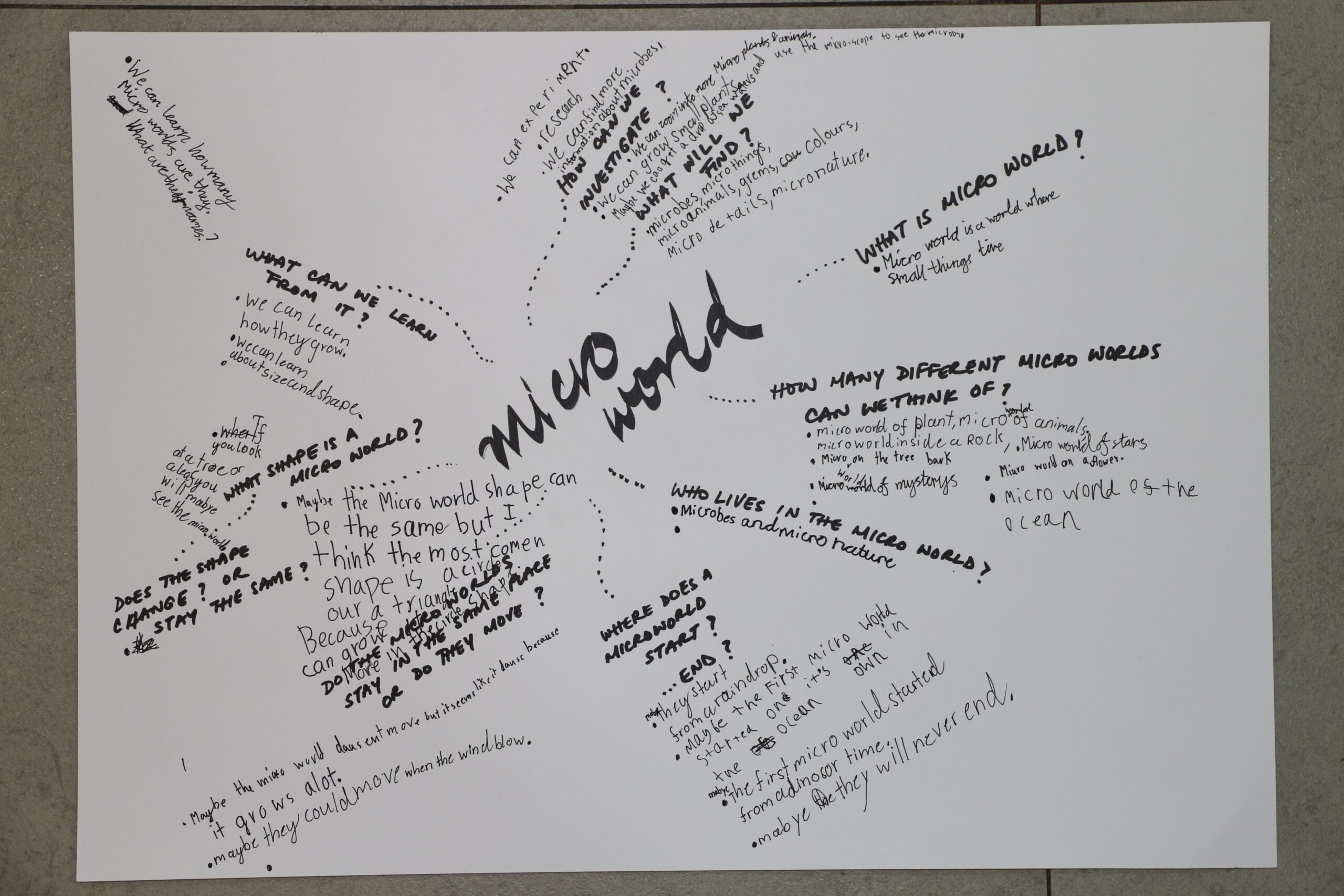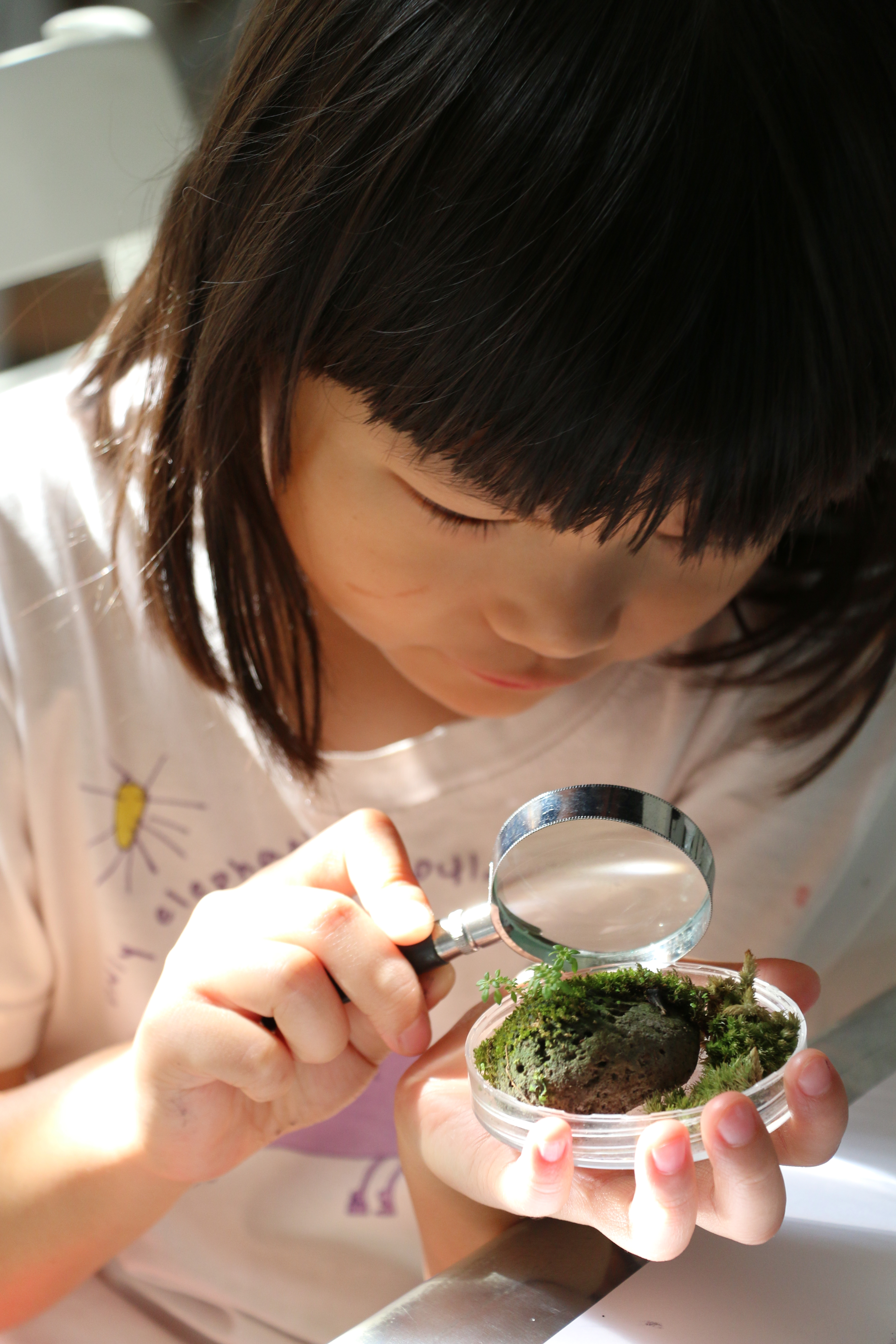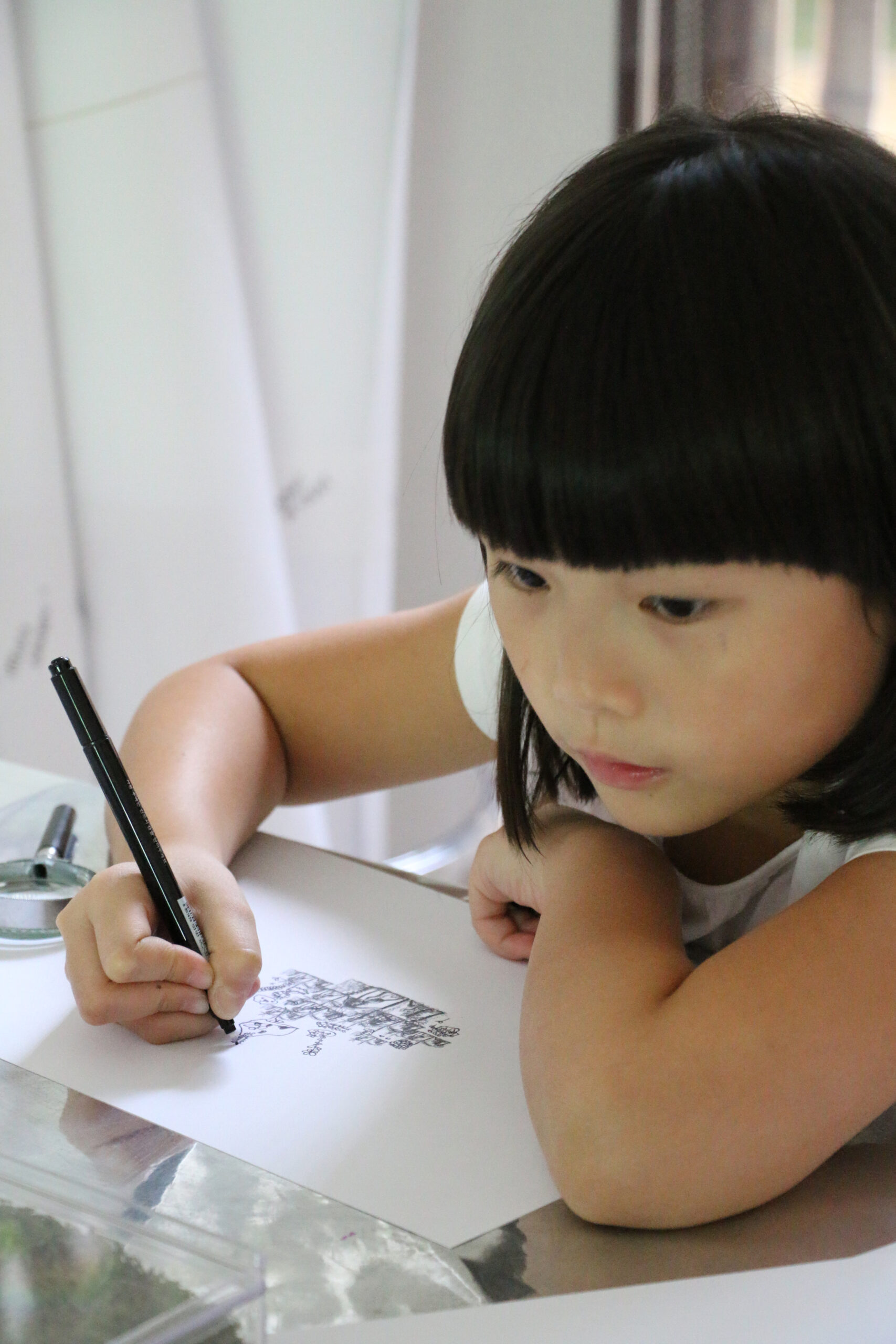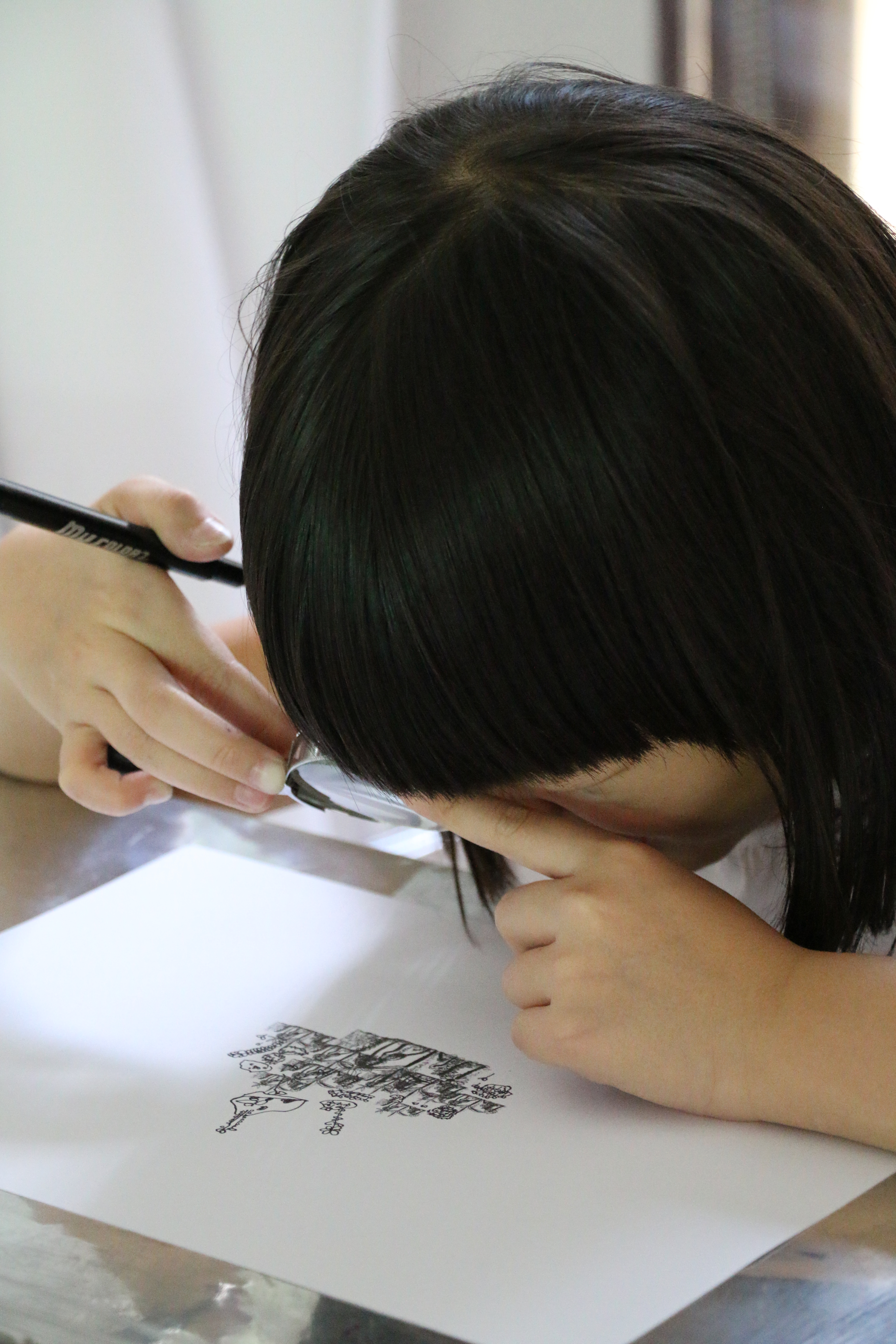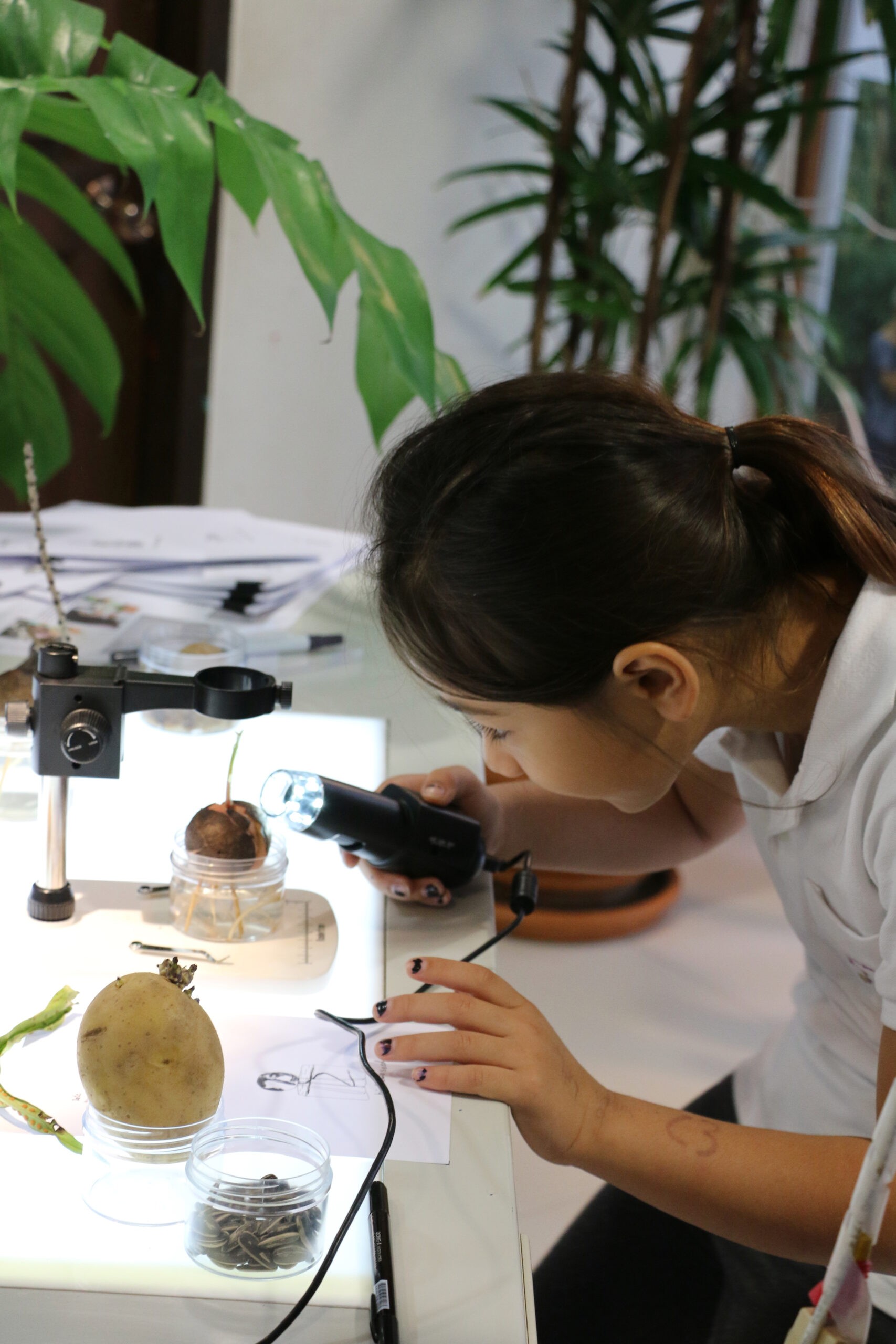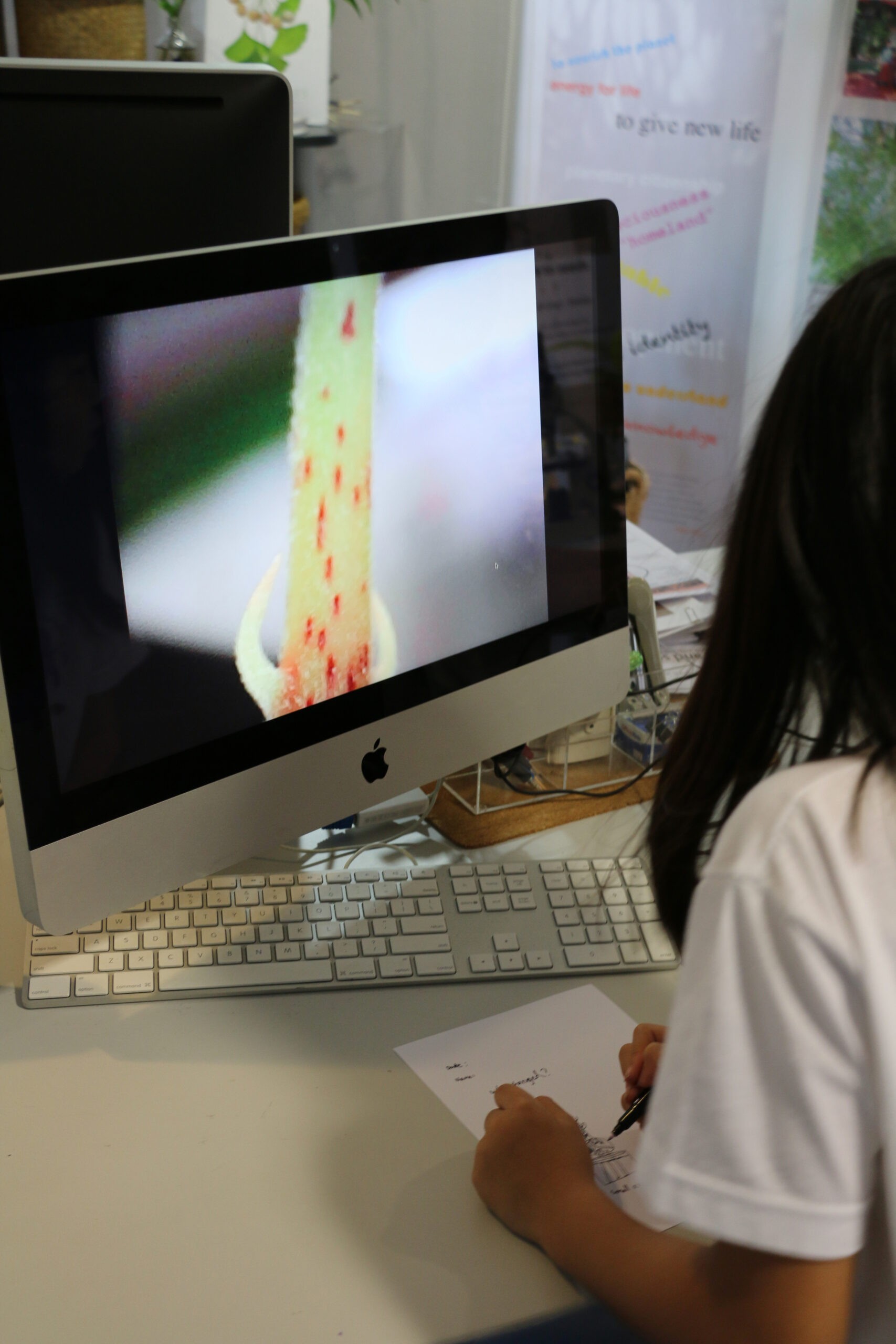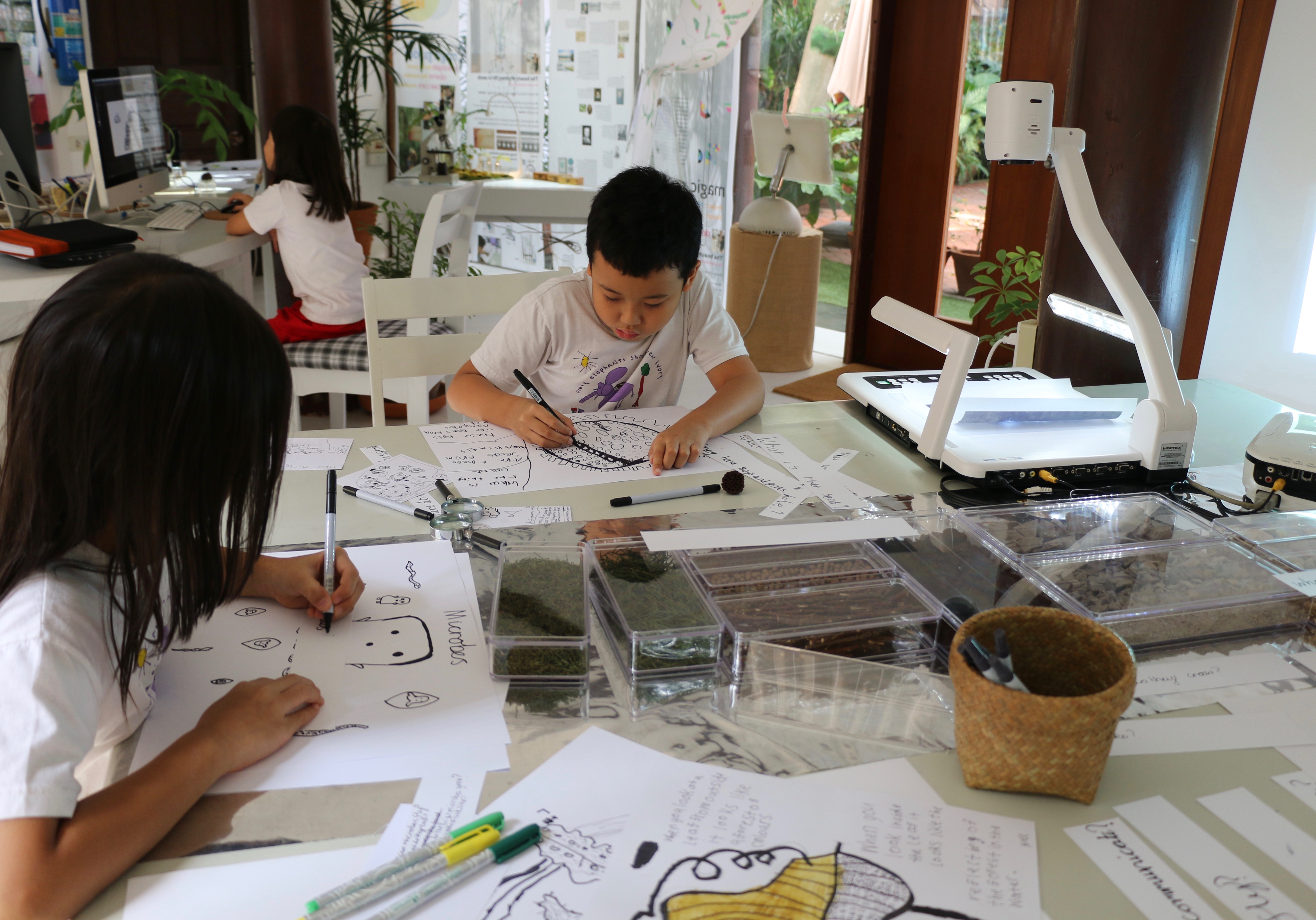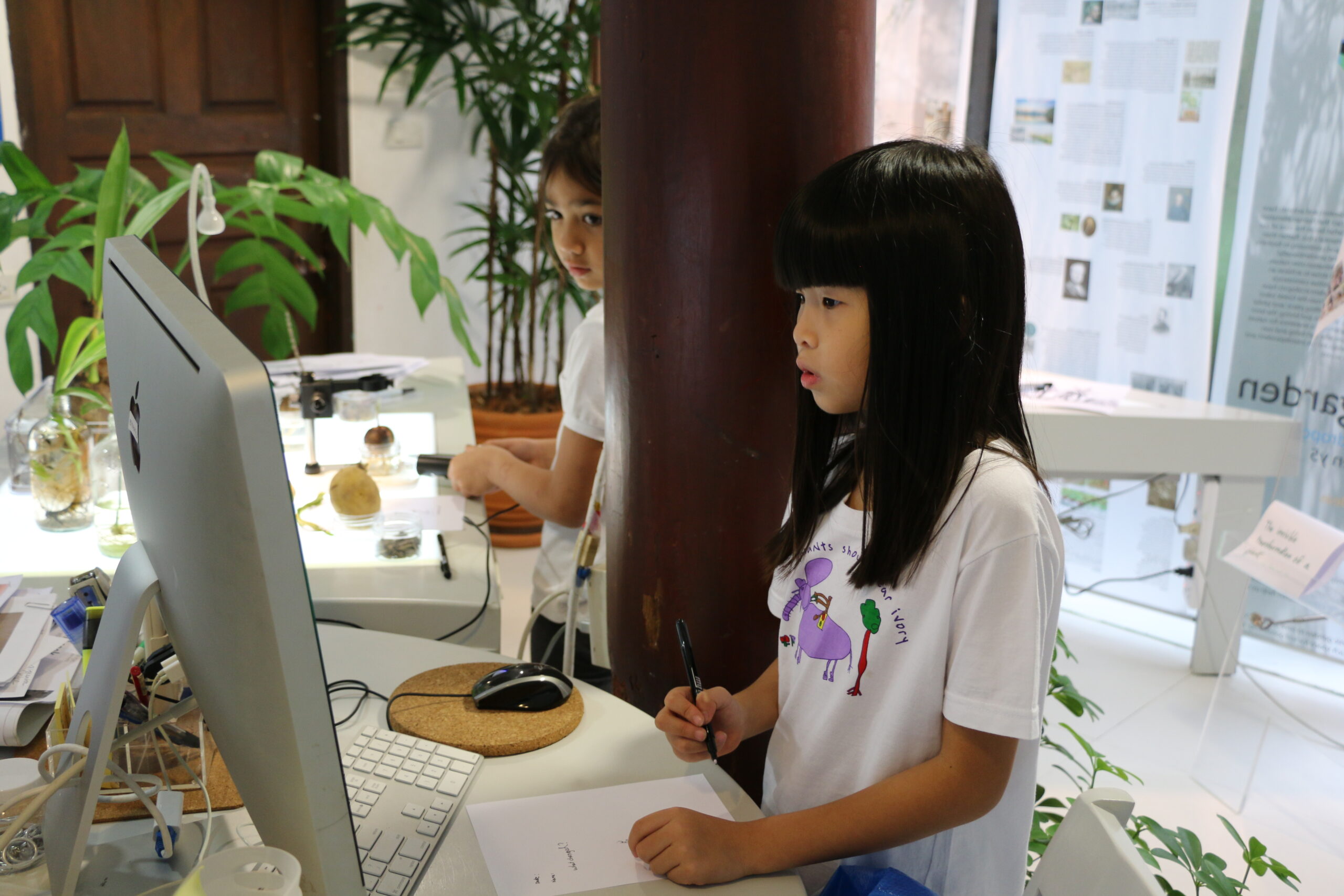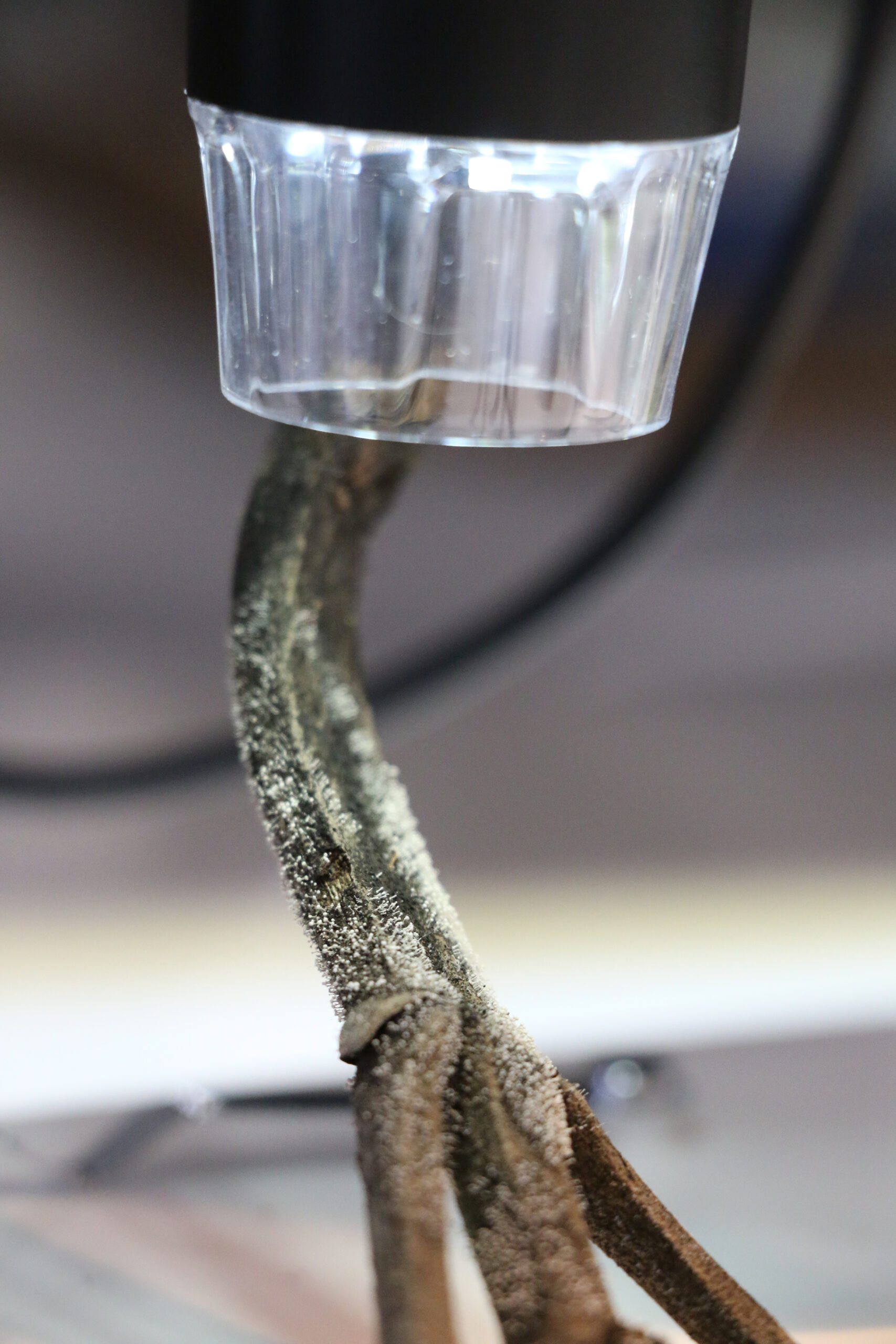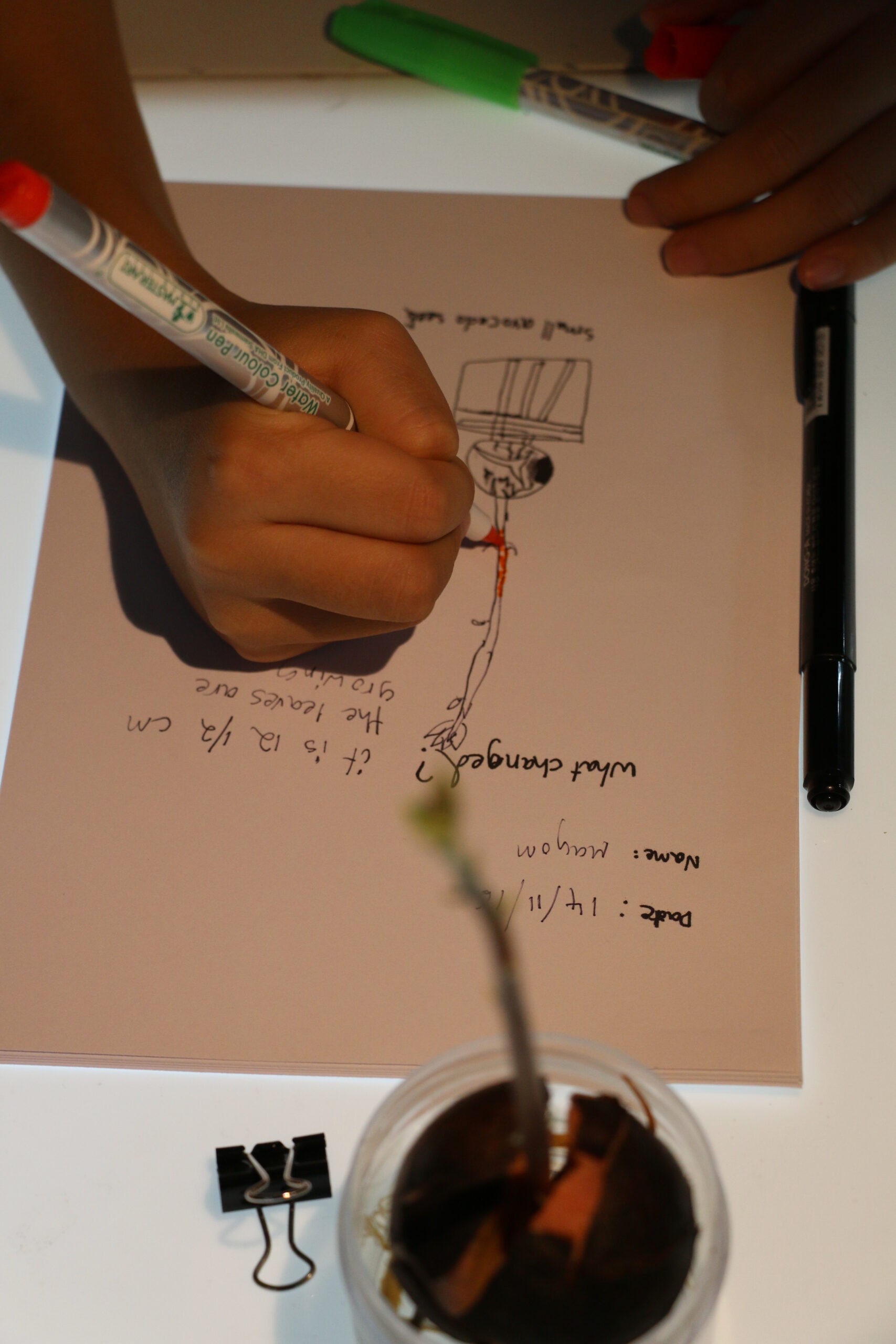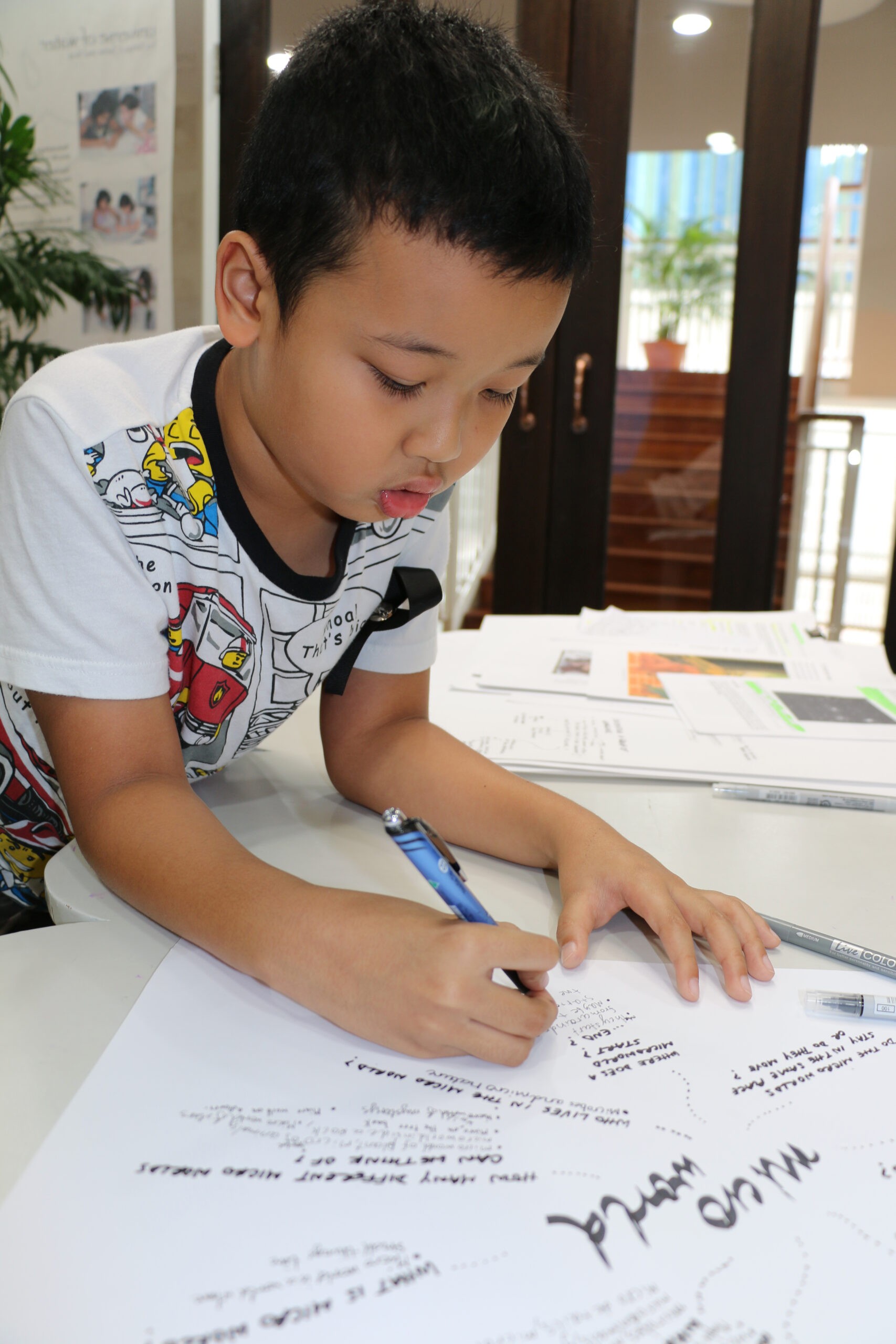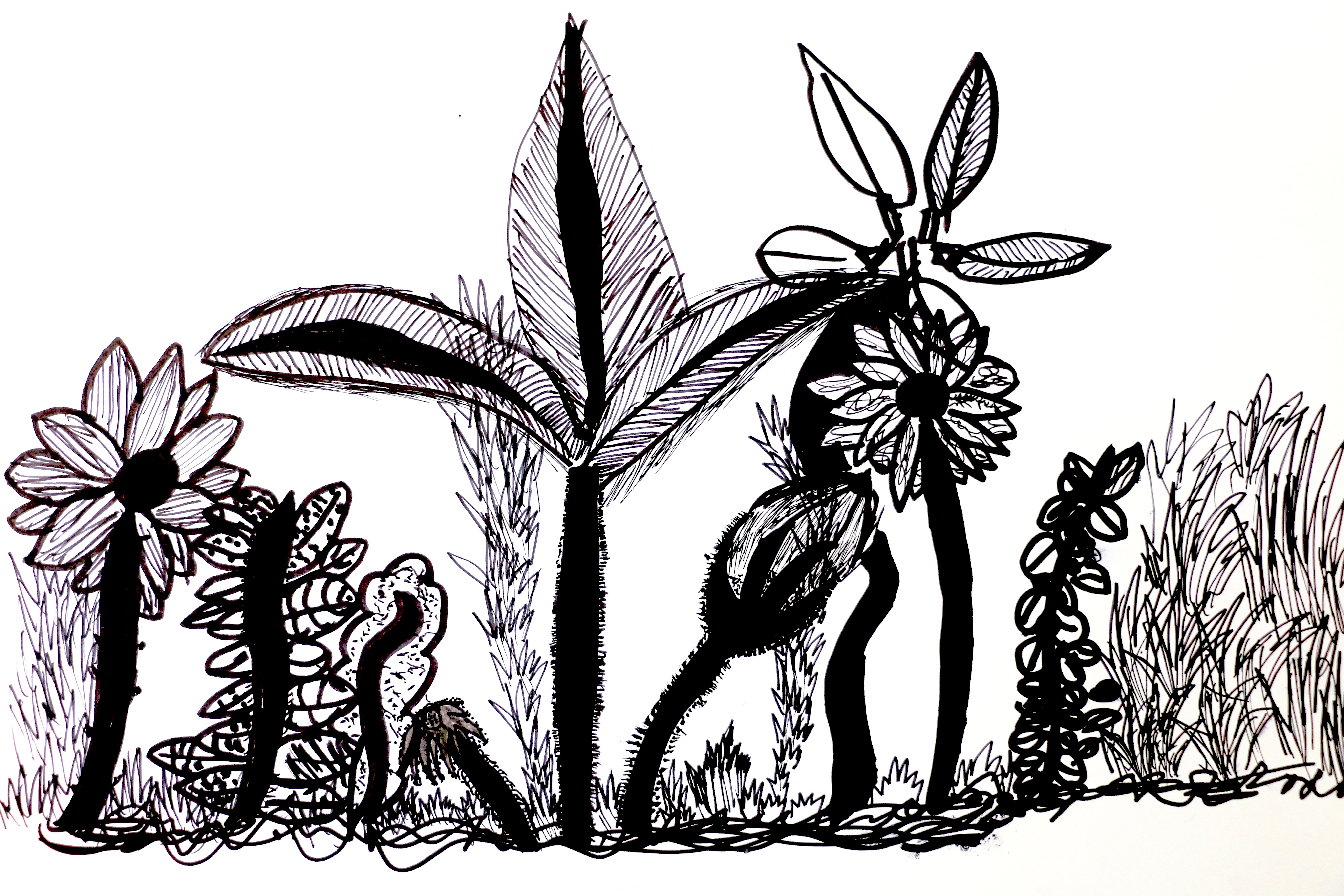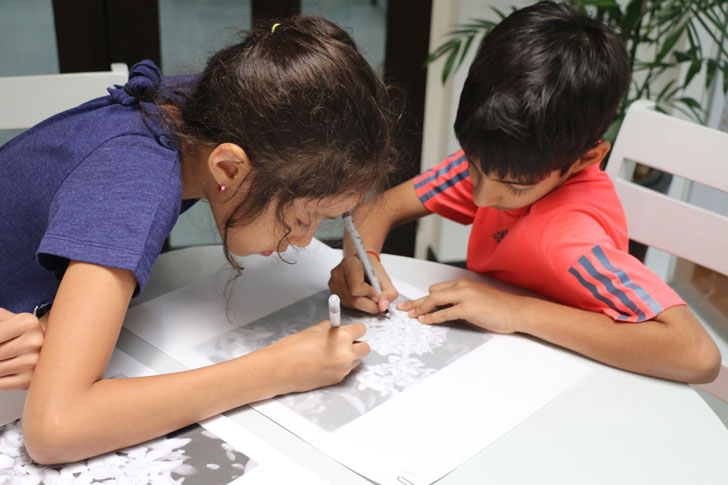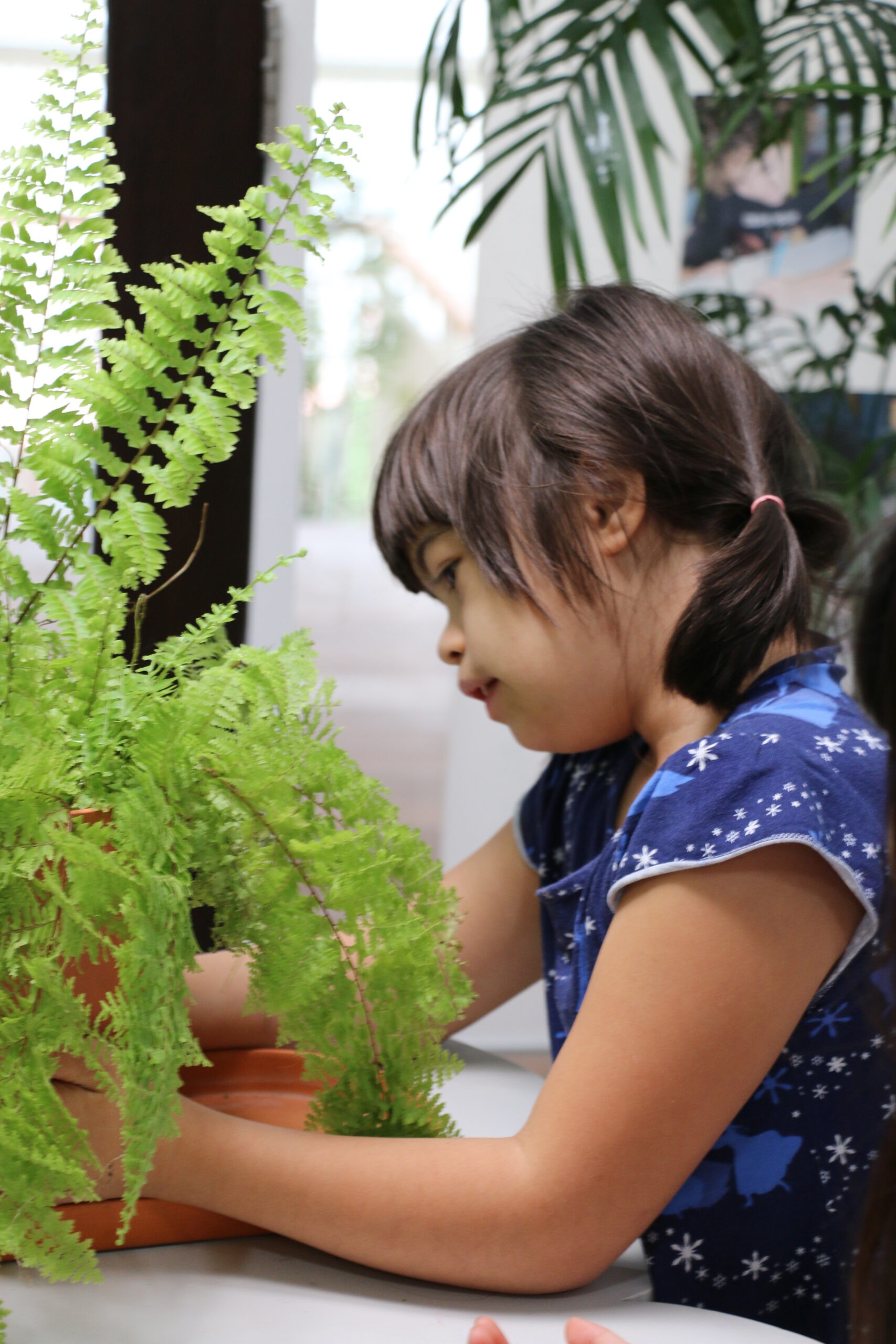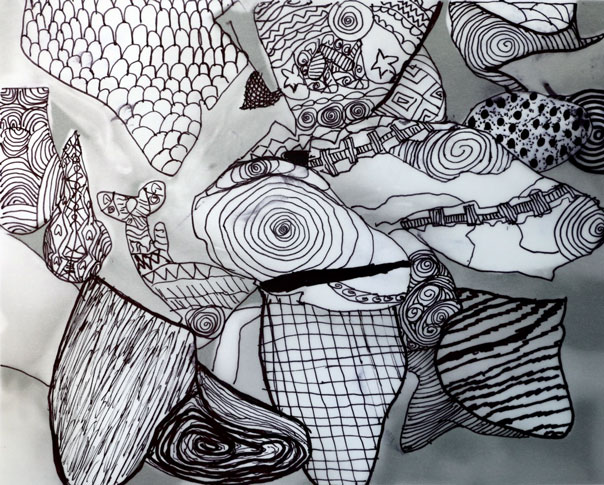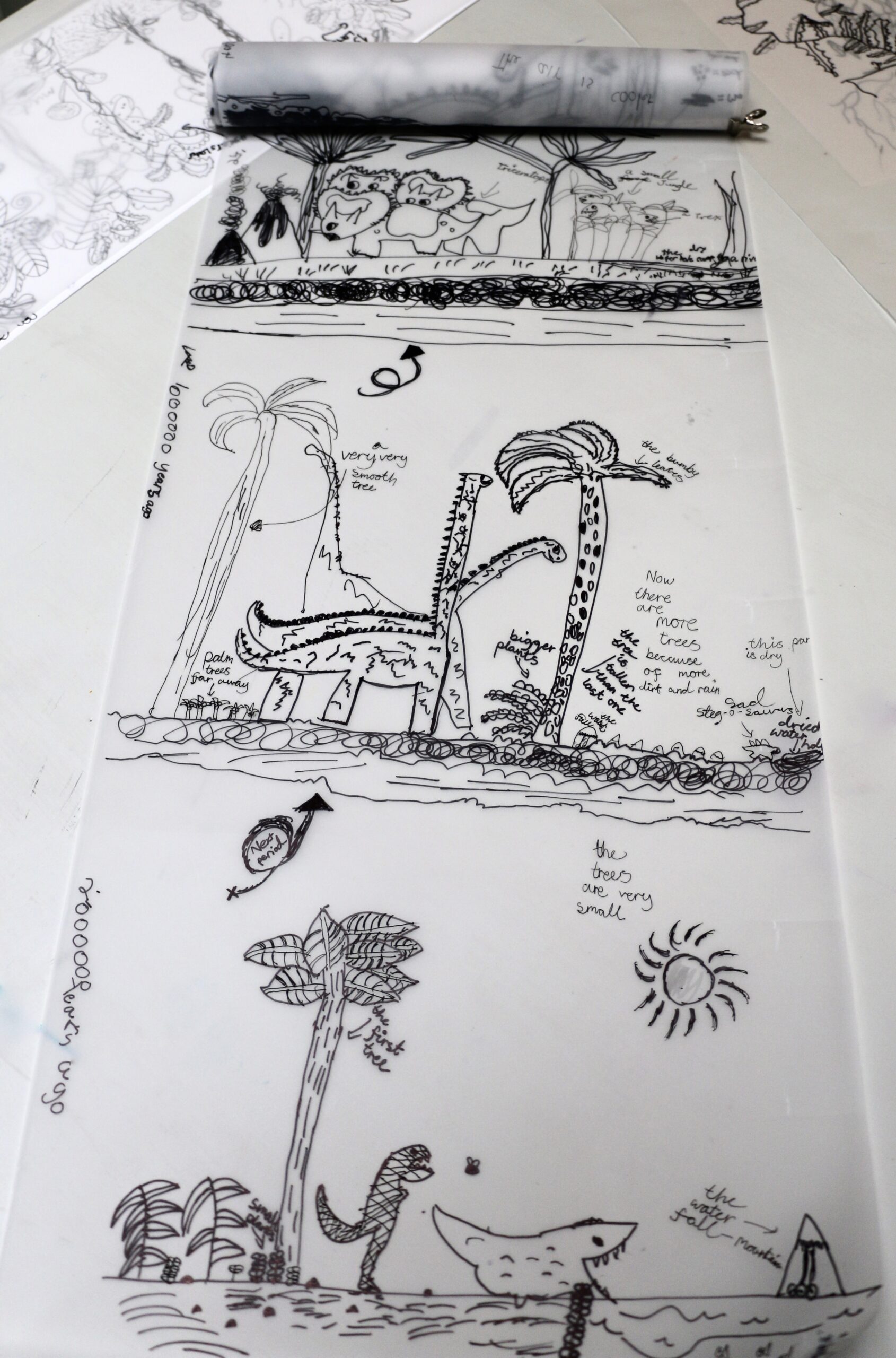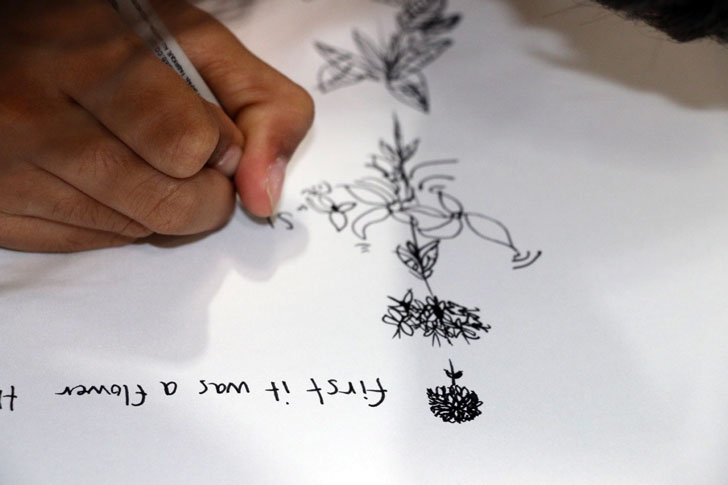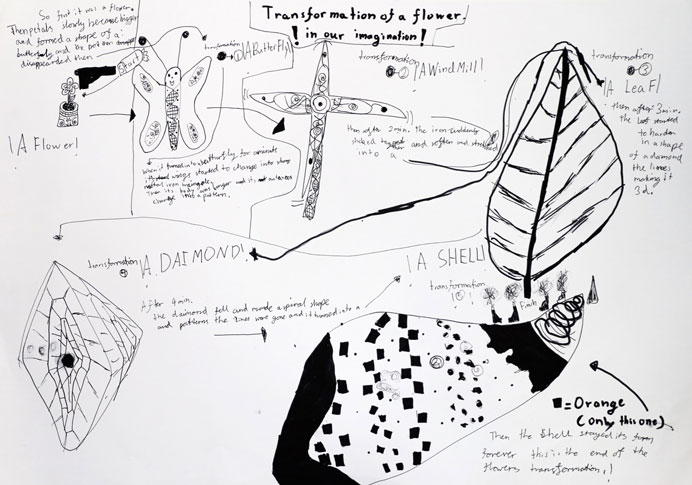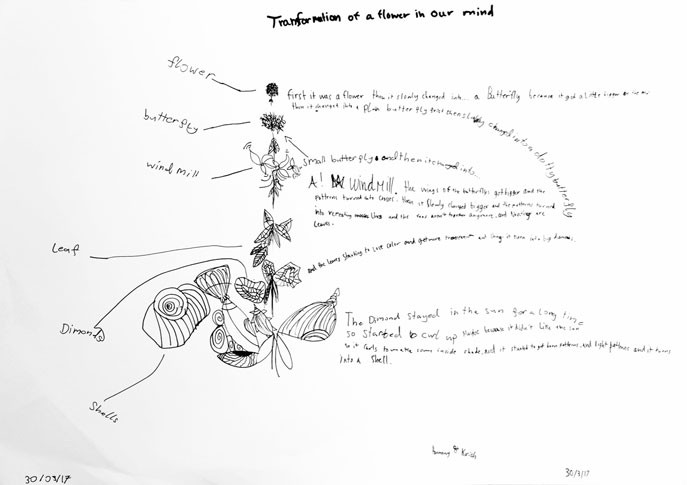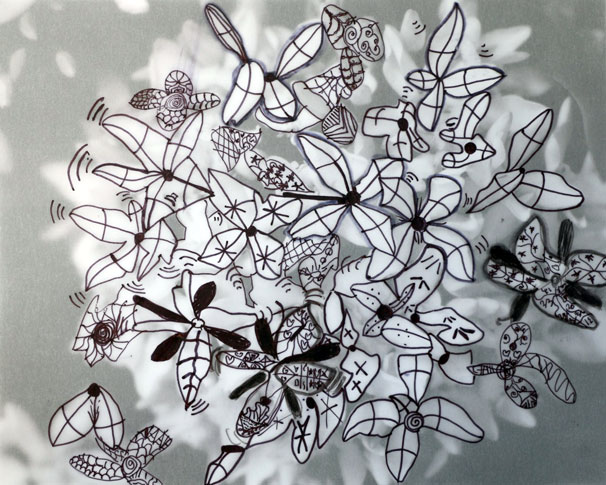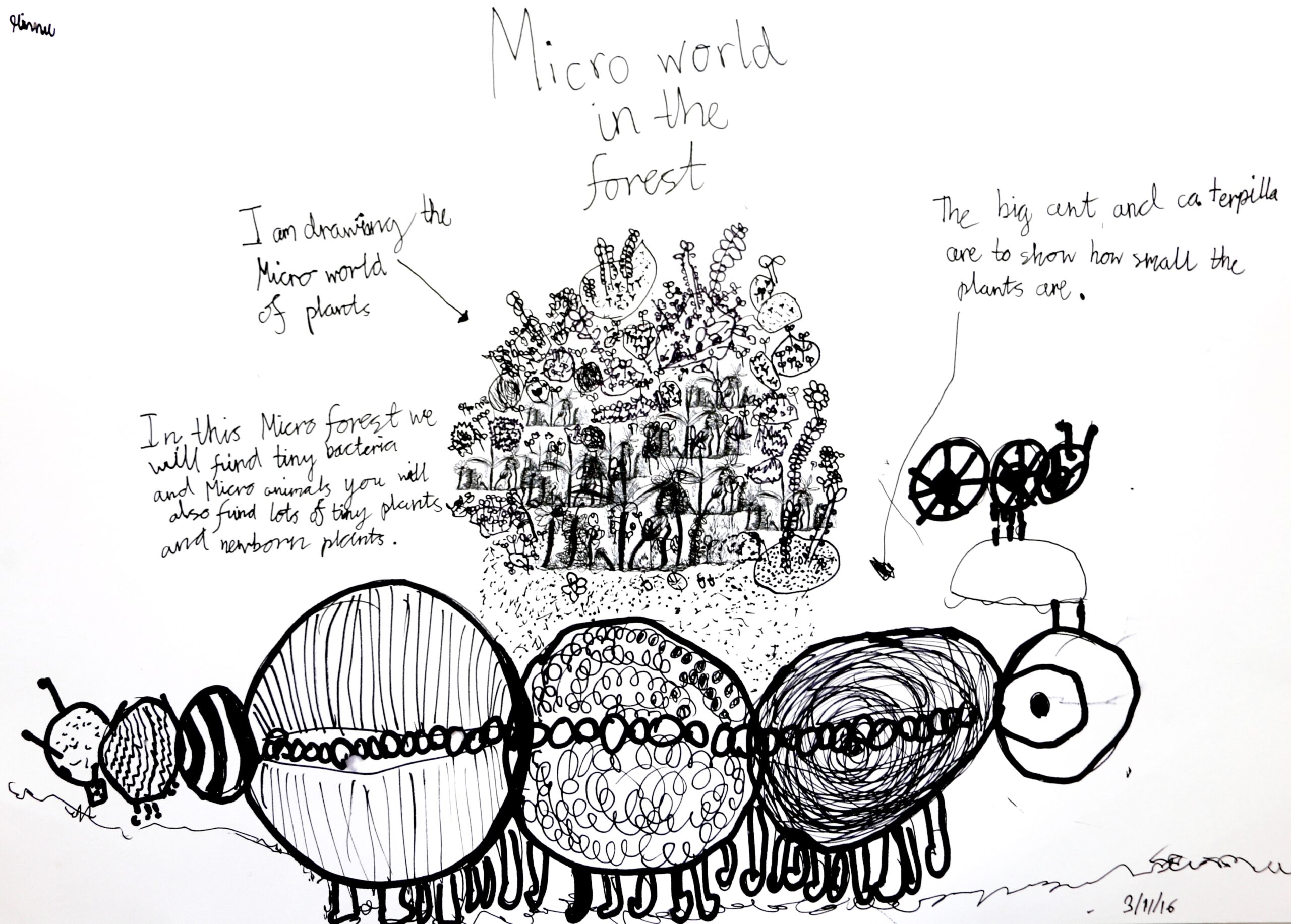curriculum of year 4
MICROWORLDS AND LIFE FORMS
Year 4 is an exciting time at ELC. The children grow in self awareness and the process of learning is more visible to them. A focus on the investigation and inquiry process allows children to participate even more in their own learning. Teachers nurture and encourage feelings of independent thinking, learning and decision making. This builds resourcefulness and resilience in the children and their independence grows in the classroom.
Mathematics
Increasing complexity | Context-based investigations | Measurement | Geometry & Spacial sense | Pattering & Algebra | Data management & Probability
The strands of measurement, geometry and spatial sense, patterning & algebra and data management and probability are investigated in increasingly complex ways through a process of recursive elaboration. Proportional reasoning, fractional amounts and decimals all combine with the representation of numbers to ten thousand and multiplication and division become consolidated.
Growth mindset is enhanced as children encounter context-based investigations and inquiries. Mathematical reasoning, convincing, proving and being a sceptic are developed. Using operations flexibly leads to revision and diversity in thinking. A Math congress allows our young mathematicians to communicate their ideas, solutions, problems, proofs and conjectures to one another. Project based math might explore patterns in the universe such as spiral, elliptical, lenticular, and irregular galaxies.
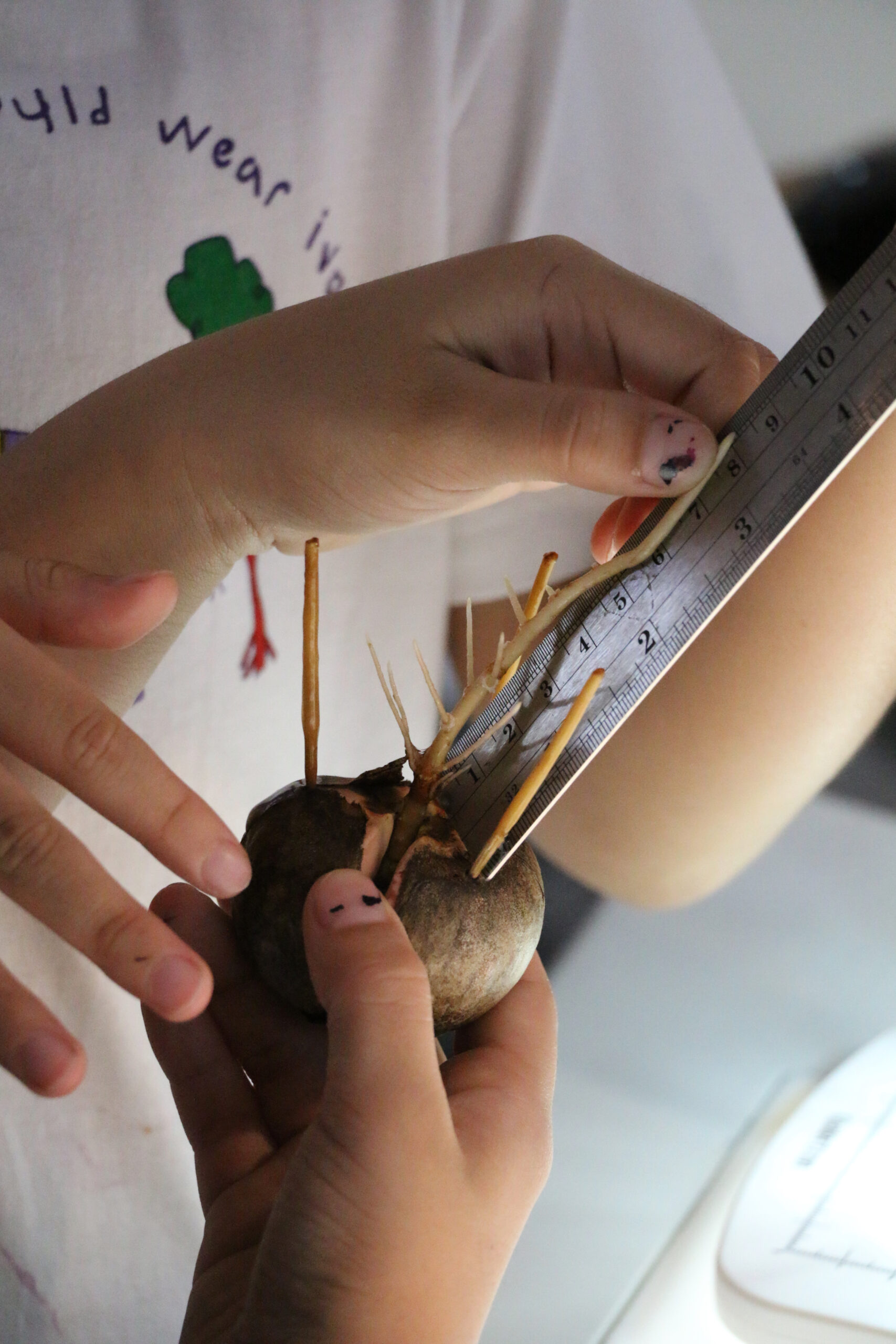
Literacy
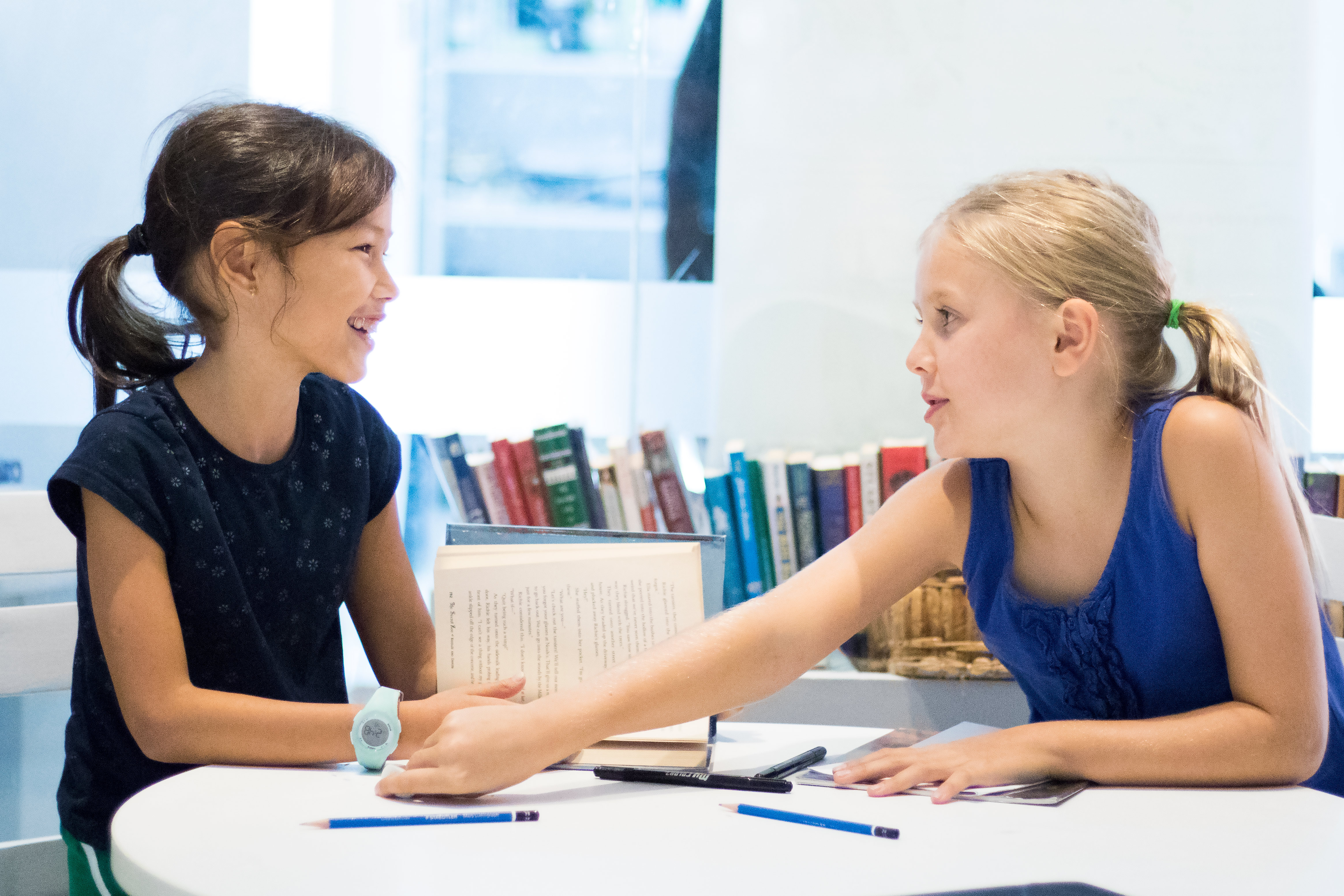
Effective communications | Phonology | Morphology | Etymology | Spelling rules | Writing | Reading
Children on Year 4 read, write, speak and listen daily to grow upon their effectiveness and confidence as communicators. Whole class workshops for reading and writing utilize strategies for thinking when reading and improve crafting techniques for writing, incorporating a multitude of book creation strategies. Children are immersed in our ‘Word Inquiry Programme’ where they consider the structure of the English Language and with a balance of phonology, morphology and etymology, the children question, develop hypotheses and acquire spelling rules that support both accuracy in reading and spelling.
Digital Technology and Media
Information Technology | Algorithm creation | Design & Computer | Google apps
Digital Technogoly has become a prominent topic of discussion in recent educational dialogue, recognizing the enormous potential of information & communication technologies to personalise teaching and learning processes through making them more adaptive and interactive. Children in Year 4, 5 and 6 learn a vast array of design and computer skills, providing them with the knowledge to create a foundation for growing up in an increasingly technology literate world. Media Technology lessons give the children the opportunity to utilize digital tools to explore and create in a variety of ways; from practicing skills like algorithm creation to publishing informational texts using Google apps. Technology plays a larger role in the Project explorations, with the children utilizing the base knowledge from previous years to synthesize their learning in ways that are meaningful to them.
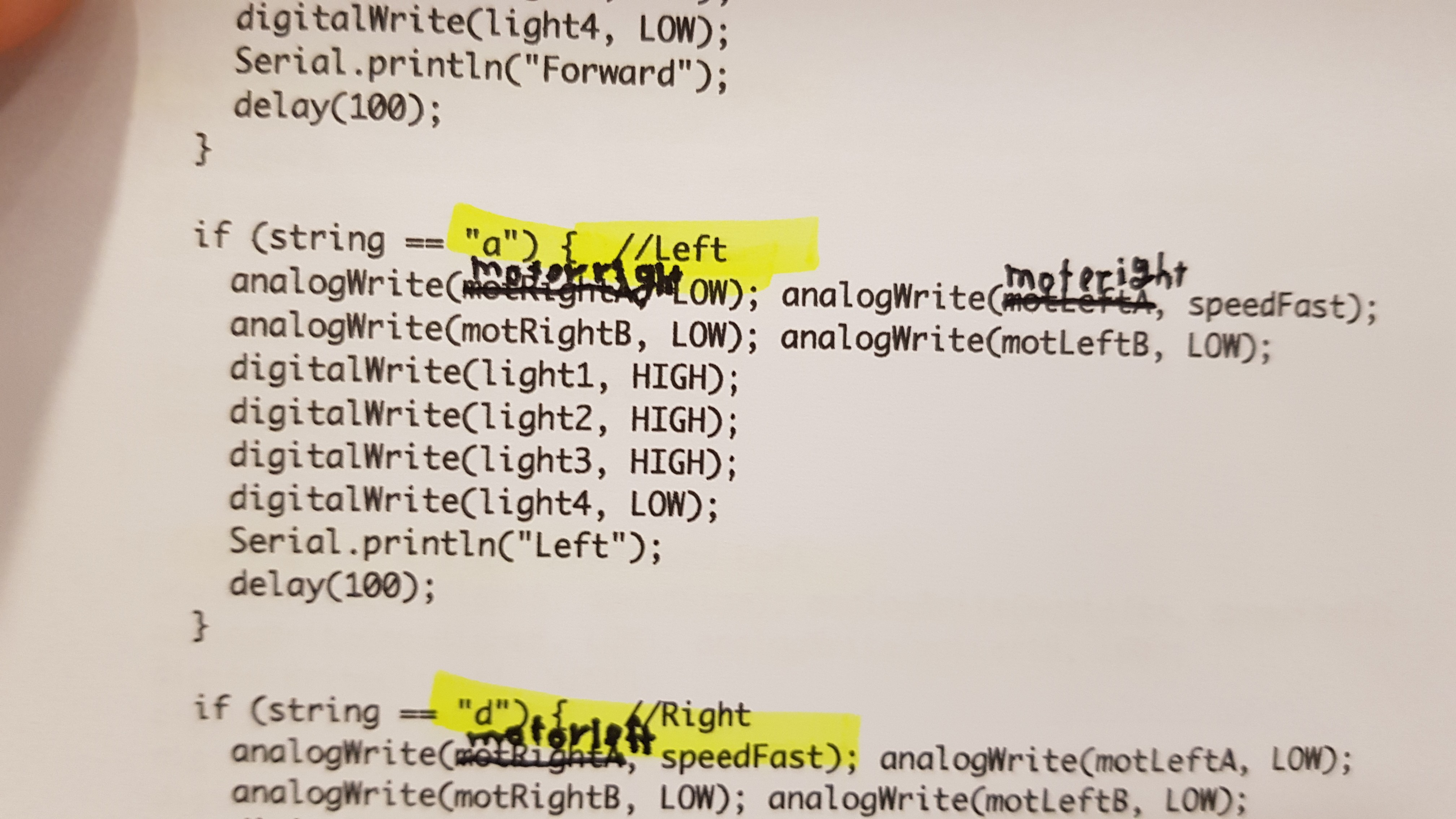
Music
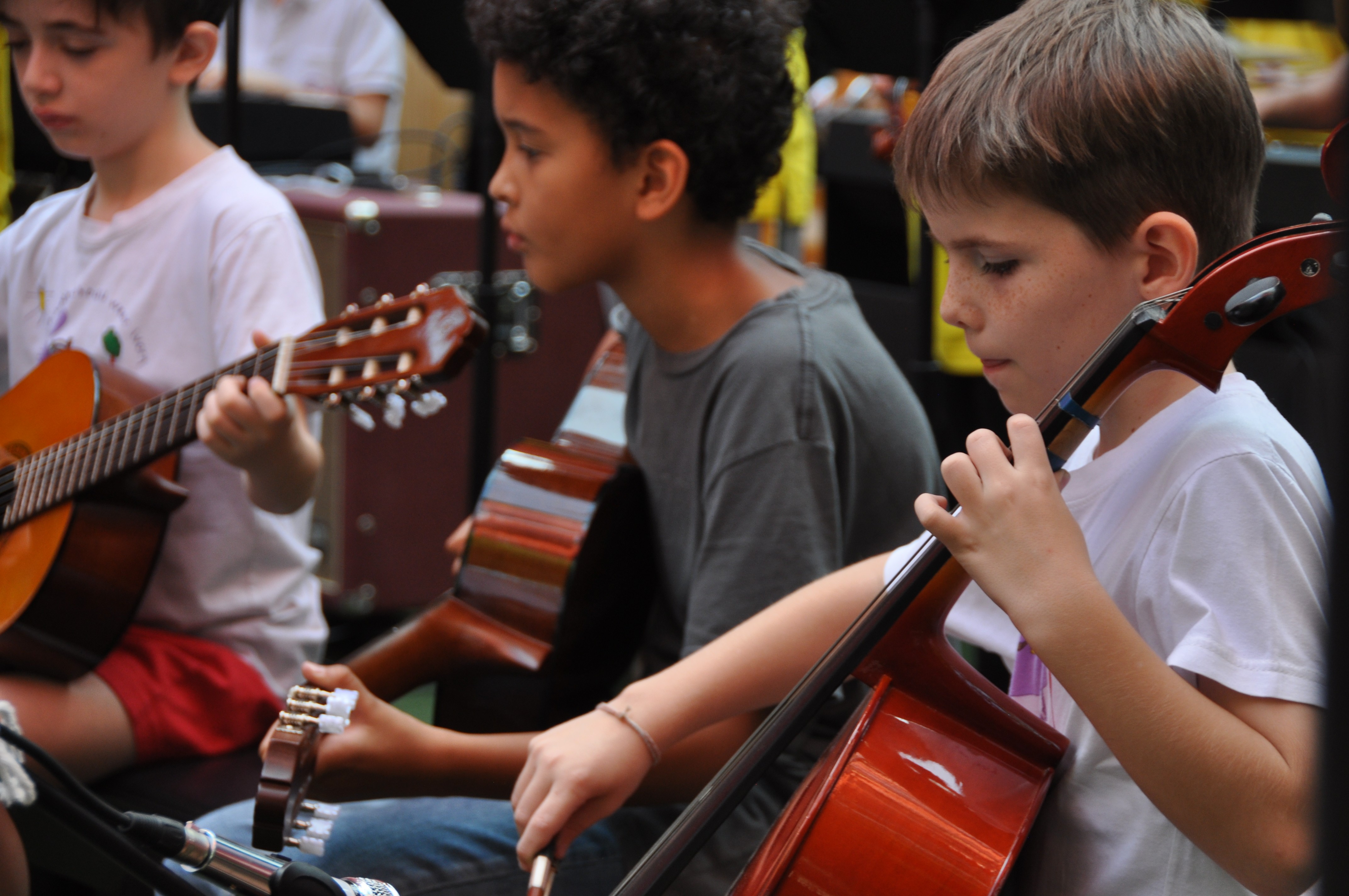
Major muscial genres | Voice building | Instrument playing
In Year 4 the children continue to develop their singing voices including the introduction of part singing. They expand their repertoire of songs from around the world and focus on major musical genres. Children begin to develop an understanding of musical composition and play instruments with increasing control and confidence.
Health and Physical Education (PE)
Fundamental movement | Gameplay | Cooperation and Competition | Coordination skills
The Year 4 programme continues to build on the children’s prior knowledge of fundamental movements as well as their understanding of gameplay and friendly competition. The children begin the year with cooperative activities to foster a sense of community and work together to overcome challenges with the use of effective communication and problem solving skills. The children further develop their hand-eye coordination skills with a focused study on striking and fielding games where they are introduced to games, such as Danish Longball and Tennis, in order provide an opportunity for children to learn to strike objects with an implement, such as a bat or a racquet. The children learn about the importance of reflection and analysis of performance through peer-assessment activities where they must observe and provide general feedback about their partner’s technique when performing a movement or a skill.
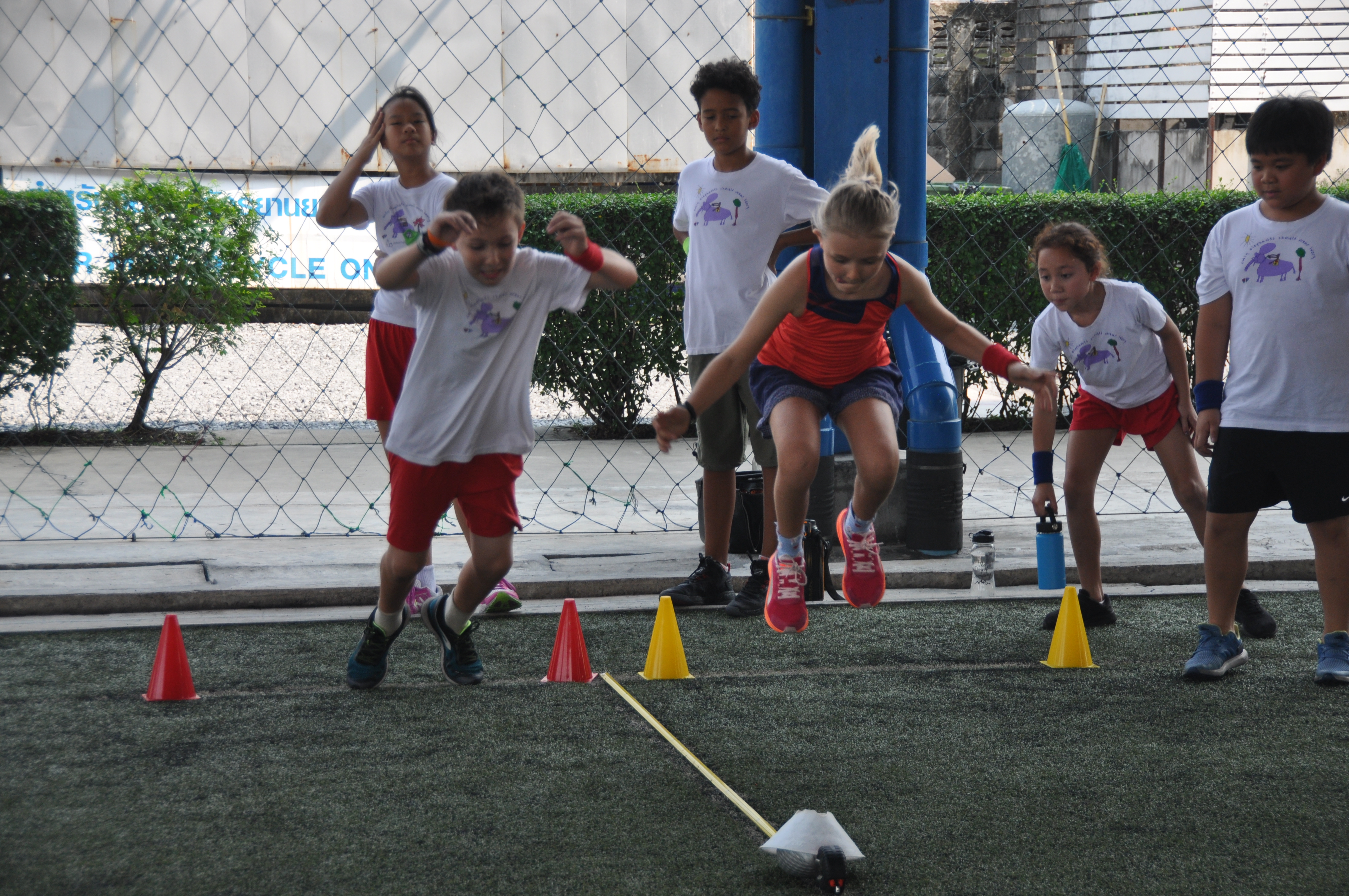
PROJECT OF YEAR 4
Microworlds and Life Forms
In Year 4, the overarching topic for project is ‘Microworlds and Life Forms’. There are living creatures and, indeed, entire worlds that are invisible to the naked eye. We are fortunate to live in an age in which it is possible for us to observe and appreciate the complexity and detail of these microscopic universes because of continual advances in technology.
Life on our planet manifests itself in a variety of fascinating forms that have been able to adapt even in the most inaccessible, unthinkable and even inhospitable of places.
What forms do they have? Do they move and, if so, how?
Ours is a search that will lead us into the world unseen to human eye. We intend to focus on “invisible” life forms (such as moulds and yeasts), while observing and representing their transformations, and striving to identity the elements necessary for life.
Life, Time and Transformations
Big, small, fast, slow, natural, artificial, visible, invisible …
Observing the world around us, were able to perceive some of the changes taking place as time passes. Many others, however, go unnoticed because they occur at the molecular level or not in a time frame that is perceivable by man. As human beings, we undergo continuous changes that not only affect our outward appearance, but also our inner worlds, our identities, our thoughts and our emotions.
- Are the leaves changing colour?
- How is nature evolving?
- What changes do we see in this process of evolution?
Microworlds and Landscapes
Landscape can refer to the visible features of an area of land, the landforms and how they integrate with natural or manmade features – [New Oxford American Dictionary].
This definition of ‘landscape’ can be extended, thanks to continued technological advances, to microscopic landscapes. These were first discovered some 400 years ago by English architect, philosopher and scientist Robert Hooke who carefully examined life forms under a microscope and recorded his findings. The systematic study of these microscopic landscapes has contributed significantly to the present day fields of physics and chemistry by affording us a way to better understand the structure of nature and to envisage ways in which to manipulate matter to find new uses and adaptations.
- What forms will we find in our search?
- How can we find connections between the different universes we belong to?
Here begins our search for fascinating new worlds, for landscapes to be observed as we uncover similarities, differences and patterns. This is a journey that we hope will take us to uncharted lands, ones that will fuel our imaginations and allow them to flow freely as we search for new stories to be told.
